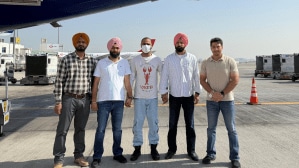A matter of adoption
There are three types of adoption practices in the country. First, the ancient Hindu dattak system, where a child of known lineage is hande...

There are three types of adoption practices in the country. First, the ancient Hindu dattak system, where a child of known lineage is handed over to a Hindu couple of the same caste. This child enjoys all the rights of a biological child.
Second, all minority communities can only adopt under the Guardianship Act. Here the ward does not have the right to use the surname of his biological parents or inherit property. The guardianship relapses after the child turns 18. The third is adoption under the Hindu Adoption Act, which does not permit adoption of a second child of the same sex. Therefore, the second child of the same sex has to be included in the family fold under the Guardianship Act.
This poses a major hindrance to adoption of twins and siblings, who unnecessarily get placed in different environments. If the parents are in government service, the adopted child will be entitled to benefits like travel allowance etc. The ward will not. Similar problems arise at the time of immigration.
City-based adoption agencies are disappointed by the HC ruling. Consultant with Indian Association for Promotion of Adoption and Child Welfare (IAPA) Meera Srinivas, says the present act discourages parents to adopt more than one child. It can also cause inheritance disputes between the adopted child and the ward, unless a special will is made.
But in case of untimely death of a parent, the `ward’ tends to lose everything. Adoption practitioner of Bal Asha, Madhavi Hegde-Karandikar says wards are not even entitled to ancestral property or wealth under the present circumstances.






- 01
- 02
- 03
- 04
- 05

























